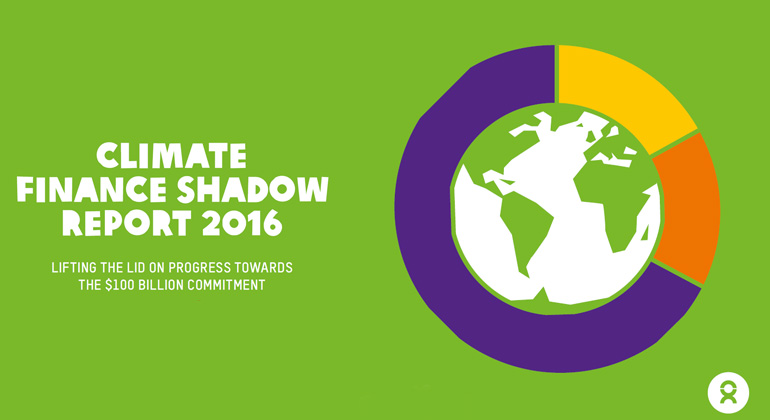A year after the Paris climate deal, most vulnerable are still not getting financial support they need
The amount of net financial assistance going to help developing countries fight climate change has been miscounted by tens of billions of dollars, according to a new Oxfam report released on the eve of the United Nations’ climate change conference in Morocco.
In “The Climate Finance Shadow Report 2016,” Oxfam shows that of the $41 billion per year that rich countries reported, the net worth specifically targeting climate action was just $11 to $21 billion. Of that, just $4 to $8 billion was earmarked to help poor countries adapt to the impacts of climate change, far short of what’s needed.
“Climate change is already hitting people. Droughts have killed crops; sea level rise has destroyed homes. These kinds of climate shocks, combined with a ‘super’ El Niño, have left around 60 million facing hunger this year alone. The people most vulnerable to these effects are the least responsible for causing climate change. They need help to adapt to their new reality, but are still not getting it at the scale needed,” said Isabel Kreisler, Oxfam International’s climate change expert.
Oxfam’s count also shows that just $8.7 billion of overall climate finance is going towards the Least Developed Countries, the group of 48 of the world’s poorest countries who are particularly vulnerable to climate change and lack the resources to handle its impacts.
Because the rules and reporting guidelines for what counts as climate finance are limited and poorly defined, Oxfam’s tally shows a very different picture from what rich countries have reported in the past. Developing countries are in danger of losing out sorely needed financial support that they’re legally owed under the UN climate change convention.
“The fast ratification of the Paris Agreement shows world leaders understand the need for urgency. We cannot afford to slacken the pace now. The Marrakech summit must guarantee that the people on the front lines of the climate crisis get the support they need and are entitled to,” said Kreisler.
Oxfam calls on donor countries and other major players at the conference in Marrakech to:
- Step up their efforts to increase adaptation finance, particularly for the Least Developed Countries.
- Work with developing countries’ governments to make funds more easily accessible to those that need it the most.
- Make progress on tracking where the money’s going with improved accounting and reporting.
Climate funding wasn’t the only piece of unfinished business left over from Paris. Without further greenhouse gas cuts, the world will become dangerously warmer. While this is Patricia Espinosa’s first conference as the UN’s climate change chief, Oxfam expects she will be able to guide negotiators towards solutions for these and other problems.
“The Paris Agreement wasn’t just a one-off moment; it must mark the start of deeper international collaboration to fight climate change. Emissions must fall further and climate finance must flow faster,” said Kreisler.
Download the report here.








